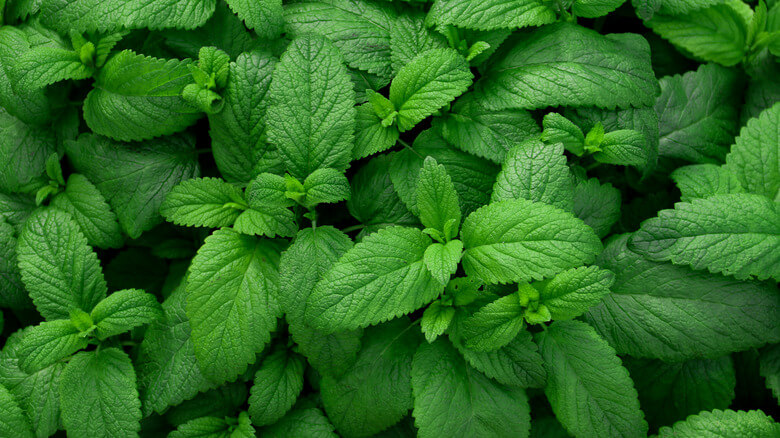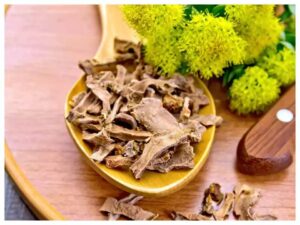The Curious Discovery of Peppermint: A Tale of Ancient Herbalism and Modern Science
A Mysterious and Aromatic Herb
Peppermint is a plant with a long and fascinating history. This herb, with its characteristic scent and flavor, has been used for thousands of years for its medicinal and culinary properties. But how did this curious herb come to be discovered in the first place?
Ancient Roots of Peppermint
Peppermint, or Mentha piperita, is a member of the mint family, and is believed to have originated in the Mediterranean region. The herb was known to ancient cultures such as the Greeks, Egyptians, and Romans, who used it for a variety of purposes.
One of the earliest written records of peppermint comes from ancient Egyptian texts, which describe the use of the herb for medicinal purposes. The Egyptians used peppermint to soothe upset stomachs, as well as to treat coughs, colds, and other respiratory ailments.
In ancient Greece and Rome, peppermint was also prized for its medicinal properties. The herb was used to treat a variety of digestive issues, including indigestion, bloating, and gas. It was also used as a pain reliever and to help with fever and headaches.
The Rediscovery of Peppermint
Despite its long history of use, peppermint fell out of favor during the Middle Ages. It wasn’t until the 17th century that the herb was rediscovered by European herbalists.
One of the first recorded uses of peppermint in modern times comes from the English herbalist Nicholas Culpeper, who wrote about the herb in his book “The English Physician.” Culpeper recommended peppermint for a variety of ailments, including digestive issues, headaches, and nausea.
In the 18th century, peppermint became more widely used in Europe and North America. It was used as a flavoring in foods and beverages, as well as in medicines and toiletries.
Modern Scientific Studies on Peppermint
Today, peppermint is still widely used for its medicinal and culinary properties. In recent years, scientific studies have shed new light on the herb’s potential health benefits.
One of the most well-known uses of peppermint is for digestive issues. Several studies have shown that peppermint can help relieve symptoms of irritable bowel syndrome (IBS), including bloating, gas, and abdominal pain. Peppermint may work by relaxing the muscles in the digestive tract, which can help relieve spasms and cramping.
Peppermint may also have benefits for respiratory health. The herb has been shown to have a soothing effect on the throat and airways, which can help relieve coughs and other respiratory symptoms. In addition, peppermint oil may have antibacterial and antiviral properties, which could make it useful for fighting infections.
The Future of Peppermint
Peppermint continues to be a popular herb for both medicinal and culinary purposes. With its long history of use and modern scientific research, it is likely that peppermint will continue to be a valuable plant for years to come.
Researchers are also exploring new uses for peppermint, including its potential as a natural insect repellent and as a treatment for certain skin conditions. As our understanding of this fascinating herb continues to grow, it is clear that peppermint has much to offer both ancient herbalism and modern science.

The Power of Peppermint: Exploring Its Numerous Health Benefits
Introduction to Peppermint
Peppermint (Mentha piperita) is a fragrant herb that is commonly used in food, cosmetics, and traditional medicine. It is a hybrid of watermint and spearmint, and is native to Europe and Asia. Peppermint has been used for thousands of years for its medicinal properties, and has a long history of use in traditional medicine.
Aids Digestion
One of the most well-known benefits of peppermint is its ability to aid digestion. Peppermint has been shown to have a relaxing effect on the muscles of the digestive tract, which can help reduce spasms and cramping. It can also help relieve symptoms of irritable bowel syndrome (IBS), such as bloating, gas, and abdominal pain.
Peppermint may also help stimulate bile flow, which can aid in digestion and help prevent the formation of gallstones. Additionally, peppermint may help relieve nausea and vomiting, making it a useful treatment for morning sickness and other digestive issues.
Relieves Headaches and Migraines
Peppermint may also be effective for relieving headaches and migraines. The herb has a cooling effect on the skin, which can help reduce inflammation and pain. Applying peppermint oil to the temples and forehead may help relieve tension headaches and migraines.
In addition, peppermint oil has been shown to have a calming effect on the nervous system, which may help reduce stress and tension that can trigger headaches.
Soothes Respiratory Issues
Peppermint may also be useful for treating respiratory issues such as coughs, colds, and asthma. The herb has a soothing effect on the throat and airways, and can help relieve congestion and coughing.
In addition, peppermint oil has antibacterial and antiviral properties, which may help fight infections that cause respiratory issues. Peppermint oil can be used in aromatherapy or applied topically to the chest and throat for maximum effect.
Reduces Inflammation
Peppermint has been shown to have anti-inflammatory properties, which can help reduce inflammation in the body. Inflammation is a major contributor to many chronic diseases, including heart disease, arthritis, and cancer.
Studies have shown that peppermint can help reduce inflammation in the digestive tract, which may help relieve symptoms of IBS and other digestive issues. Peppermint may also be effective for reducing inflammation in the skin, making it a useful treatment for conditions such as eczema and psoriasis.
Boosts Immune System
Peppermint may also be beneficial for boosting the immune system. The herb has been shown to have antibacterial, antiviral, and antifungal properties, which can help fight off infections and illnesses.
Peppermint oil has been shown to be effective against a range of bacteria, including E. coli and Staphylococcus aureus. It has also been shown to be effective against several viruses, including herpes simplex virus and respiratory syncytial virus.
Improves Brain Function
Peppermint may also have benefits for brain function. The herb has been shown to have a calming effect on the nervous system, which can help reduce stress and anxiety.
In addition, peppermint has been shown to improve cognitive function, including memory and attention. The herb may also be effective for reducing mental fatigue and improving alertness.
Reduces Menstrual Cramps
Peppermint may also be effective for reducing menstrual cramps. The herb has a relaxing effect on the muscles of the uterus, which can help reduce cramping and pain.
Several studies have shown that peppermint oil can help reduce the severity and duration of menstrual cramps. Peppermint tea may also be effective for reducing menstrual pain, although more research is needed to confirm these findings.
Reduces Stress and Anxiety
Peppermint may also be useful for reducing stress and anxiety. The herb has a calming effect on the nervous system, which can help reduce feelings of anxiety and promote relaxation.
Several studies have shown that peppermint oil can help reduce symptoms of anxiety and depression. The herb may also be effective for reducing stress-related symptoms such as headaches and muscle tension.
Fights Bad Breath
Peppermint may also be useful for fighting bad breath. The herb has antibacterial properties, which can help kill the bacteria that cause bad breath.
Peppermint oil can be added to toothpaste or mouthwash to help freshen breath and kill bacteria in the mouth. Chewing on fresh peppermint leaves can also help freshen breath and improve oral hygiene.
Potential Anti-Cancer Properties
Peppermint may also have potential anti-cancer properties. Some studies have shown that peppermint oil may be effective against certain types of cancer cells, including colon, liver, and lung cancer cells.
The anti-inflammatory and antioxidant properties of peppermint may also help prevent cancer by reducing inflammation and oxidative stress in the body. However, more research is needed to confirm these findings and determine the optimal dose and method of administration.
Conclusion
Peppermint is a versatile herb with numerous health benefits. It can aid digestion, relieve headaches and migraines, soothe respiratory issues, reduce inflammation, boost the immune system, improve brain function, reduce menstrual cramps, fight bad breath, and potentially have anti-cancer properties.
While peppermint is generally safe for most people, it may interact with certain medications and cause side effects in some individuals. It is important to talk to a healthcare provider before using peppermint for medicinal purposes, especially if you are pregnant, nursing, or taking medication.
Overall, peppermint is a powerful herb that has been used for centuries for its medicinal properties. With modern research and scientific studies, we are gaining a better understanding of the many health benefits of this versatile herb.

The Nutritional Components and Core Ingredients of Peppermint
Nutritional Components of Peppermint
Peppermint is a good source of several important nutrients, including vitamins, minerals, and antioxidants. Here are some of the key nutritional components of peppermint:
- Vitamin C: Peppermint is a good source of vitamin C, an important antioxidant that can help boost the immune system and reduce inflammation in the body.
- Vitamin A: Peppermint also contains vitamin A, which is important for healthy skin, vision, and immune function.
- Calcium: Peppermint is a good source of calcium, a mineral that is important for strong bones and teeth.
- Potassium: Peppermint contains potassium, a mineral that helps regulate blood pressure and supports healthy heart function.
- Iron: Peppermint is a good source of iron, a mineral that is essential for healthy blood and oxygen transport throughout the body.
- Magnesium: Peppermint contains magnesium, a mineral that is important for healthy nerve and muscle function, as well as for maintaining healthy bones.
- Antioxidants: Peppermint contains several important antioxidants, including rosmarinic acid, menthol, and flavonoids. These antioxidants can help protect the body against oxidative stress and reduce inflammation.
Core Ingredients of Peppermint
Peppermint contains several core ingredients that are responsible for its characteristic scent and flavor. Here are some of the key core ingredients of peppermint:
- Menthol: Menthol is a compound found in peppermint that is responsible for its cooling effect on the skin and its characteristic scent and flavor. Menthol has been shown to have several health benefits, including pain relief, improved digestion, and reduced inflammation.
- Menthone: Menthone is another compound found in peppermint that contributes to its scent and flavor. Menthone has been shown to have antibacterial and antifungal properties, and may be effective for treating respiratory issues such as coughs and colds.
- Eucalyptol: Eucalyptol is a compound found in peppermint that has a minty, camphor-like scent. It has been shown to have several health benefits, including pain relief, improved digestion, and reduced inflammation.
- Rosmarinic acid: Rosmarinic acid is a powerful antioxidant found in peppermint that can help protect the body against oxidative stress and reduce inflammation. It has been shown to have several health benefits, including improved digestion, reduced allergy symptoms, and improved brain function.

Methods for Consuming Peppermint
Peppermint Tea
Peppermint tea is a popular way to consume peppermint. It is made by steeping fresh or dried peppermint leaves in hot water for several minutes.
Peppermint tea has a refreshing flavor and aroma, and is often used to aid digestion, relieve nausea, and soothe respiratory issues. It can also help promote relaxation and reduce stress and anxiety.
Peppermint tea is widely available in grocery stores and online, and can be enjoyed hot or cold. To enhance the flavor and health benefits of peppermint tea, try adding honey, lemon, or ginger.
Peppermint Oil
Peppermint oil is a concentrated form of peppermint that can be used in a variety of ways. It is made by distilling the leaves and stems of the peppermint plant, and contains high levels of menthol and other active compounds.
Peppermint oil can be used topically to relieve pain and inflammation, or aromatically to promote relaxation and reduce stress and anxiety. It can also be added to food and drinks for flavor and medicinal purposes.
However, it is important to use caution when using peppermint oil, as it can be very strong and may cause skin irritation or other side effects. Always dilute peppermint oil before using it topically or internally, and talk to a healthcare provider before using it for medicinal purposes.
Peppermint Capsules
Peppermint capsules are another way to consume peppermint for medicinal purposes. They are typically made from peppermint oil that has been encapsulated in a softgel or vegetarian capsule.
Peppermint capsules are often used to aid digestion, relieve symptoms of IBS, and soothe respiratory issues. They can also help reduce inflammation and improve cognitive function.
Peppermint capsules are widely available in health food stores and online. However, it is important to choose high-quality supplements from reputable manufacturers to ensure safety and efficacy.
Peppermint Essential Oil
Peppermint essential oil is a highly concentrated form of peppermint that is used primarily for aromatherapy and topical use. It is made by steam distilling the leaves and stems of the peppermint plant, and contains high levels of menthol and other active compounds.
Peppermint essential oil can be used aromatically to promote relaxation and reduce stress and anxiety. It can also be used topically to relieve pain and inflammation, or added to food and drinks for flavor and medicinal purposes.
However, it is important to use caution when using peppermint essential oil, as it can be very strong and may cause skin irritation or other side effects. Always dilute peppermint essential oil before using it topically or internally, and talk to a healthcare provider before using it for medicinal purposes.
Peppermint Chewing Gum
Peppermint chewing gum is a popular way to freshen breath and improve oral hygiene. It typically contains peppermint oil, which can help kill bacteria in the mouth and freshen breath.
Peppermint chewing gum can also help aid digestion, relieve nausea, and reduce stress and anxiety. However, it is important to choose sugar-free gum to avoid the negative effects of sugar on oral health.
Peppermint chewing gum is widely available in grocery stores and online. However, it is important to use moderation when consuming chewing gum, as excessive chewing can cause jaw pain and other issues.
Peppermint Candy
Peppermint candy is a sweet and refreshing treat that is often used to freshen breath and soothe digestive issues. It typically contains peppermint oil or extract, which can provide a cooling and refreshing sensation in the mouth and throat.
Peppermint candy can also help promote relaxation and reduce stress and anxiety. However, it is important to choose sugar-free candy to avoid the negative effects of sugar on oral health and overall health.
Peppermint candy is widely available in grocery stores and online. However, it is important to use moderation when consuming candy, as excessive sugar consumption can lead to a range of health issues.
Peppermint Ice Cream
Peppermint ice cream is a popular dessert that is often enjoyed during the holiday season. It typically contains peppermint extract or oil, which provides a refreshing and cooling flavor.
Peppermint ice cream can also help aid digestion and soothe respiratory issues. However, it is important to choose low-sugar or sugar-free ice cream to avoid the negative effects of sugar on overall health.
Peppermint ice cream is widely available in grocery stores and ice cream shops. However, it is important to use moderation when consuming ice cream, as excessive consumption can lead to weight gain and other health issues.


Potential Side Effects and When to Avoid Taking Peppermint
Potential Side Effects of Peppermint
- Heartburn and Acid Reflux: Peppermint may exacerbate symptoms of heartburn and acid reflux in some individuals, as it can relax the lower esophageal sphincter, allowing stomach acid to flow back up into the esophagus. Individuals with gastroesophageal reflux disease (GERD) or other digestive disorders should use caution when consuming peppermint.
- Allergic Reactions: Peppermint may cause allergic reactions in some individuals, especially those who are allergic to other herbs in the mint family. Symptoms of an allergic reaction may include itching, hives, swelling, and difficulty breathing. Individuals with a history of allergies should use caution when consuming peppermint and talk to a healthcare provider if they experience any symptoms of an allergic reaction.
- Skin Irritation: Peppermint oil may cause skin irritation or allergic reactions when used topically. Always dilute peppermint oil with a carrier oil before using it on the skin, and do a patch test before using it for the first time.
- Interactions with Medications: Peppermint may interact with certain medications, including antacids, blood thinners, and diabetes medications. It is important to talk to a healthcare provider before using peppermint for medicinal purposes, especially if you are taking medication.
- Gastrointestinal Discomfort: Peppermint may cause gastrointestinal discomfort in some individuals, especially when consumed in large amounts. Symptoms may include nausea, vomiting, diarrhea, and stomach cramps. Individuals with a history of digestive issues should use caution when consuming peppermint.
When to Avoid Taking Peppermint
- Pregnancy and Breastfeeding: Peppermint may be unsafe for pregnant and breastfeeding women in large amounts, as it can affect hormone levels and milk production. Pregnant and breastfeeding women should use caution when consuming peppermint and talk to a healthcare provider before using it for medicinal purposes.
- Children: Peppermint oil should not be given to children under the age of 6, as it can cause respiratory distress and other serious side effects. Peppermint tea or candy may be safe for children in moderation, but it is important to talk to a healthcare provider before giving peppermint to a child.
- Gallbladder Issues: Peppermint may exacerbate symptoms of gallbladder issues, as it can cause the gallbladder to contract. Individuals with a history of gallbladder issues should use caution when consuming peppermint.
- Acid Reflux and GERD: Individuals with acid reflux or GERD may want to avoid consuming peppermint, as it may exacerbate symptoms.
- Medication Interactions: Peppermint may interact with certain medications, including antacids, blood thinners, and diabetes medications. It is important to talk to a healthcare provider before using peppermint for medicinal purposes if you are taking medication.
The Drug Interactions of Peppermint
Drug Interactions of Peppermint
- Antacids: Peppermint may interact with antacids, as it can affect the absorption of certain medications. Antacids that contain aluminum or magnesium may also interact with peppermint, as they can bind to the active compounds in peppermint and prevent them from being absorbed. Individuals taking antacids should use caution when consuming peppermint and talk to a healthcare provider if they have any concerns.
- Blood Thinners: Peppermint may interact with blood thinners, as it can increase the risk of bleeding. Warfarin and other blood thinners may also interact with peppermint, as they can affect the metabolism of the active compounds in peppermint. Individuals taking blood thinners should use caution when consuming peppermint and talk to a healthcare provider if they have any concerns.
- Diabetes Medications: Peppermint may interact with diabetes medications, as it can affect blood sugar levels. Peppermint may also interact with medications that lower blood sugar, as it can increase the risk of hypoglycemia. Individuals taking diabetes medications should use caution when consuming peppermint and talk to a healthcare provider if they have any concerns.
- Cyclosporine: Peppermint may interact with cyclosporine, a medication used to prevent organ rejection after transplant surgery. Peppermint may affect the metabolism of cyclosporine and increase the risk of side effects. Individuals taking cyclosporine should use caution when consuming peppermint and talk to a healthcare provider if they have any concerns.
- Simvastatin: Peppermint may interact with simvastatin, a medication used to lower cholesterol levels. Peppermint may affect the metabolism of simvastatin and increase the risk of side effects. Individuals taking simvastatin should use caution when consuming peppermint and talk to a healthcare provider if they have any concerns.
- Immunosuppressants: Peppermint may interact with immunosuppressants, medications used to suppress the immune system. Peppermint may affect the metabolism of immunosuppressants and increase the risk of side effects. Individuals taking immunosuppressants should use caution when consuming peppermint and talk to a healthcare provider if they have any concerns.
 ### Reduces Stress and Anxiety Peppermint may also be useful for reducing stress and anxiety. The herb has a calming effect on the nervous system, which can help reduce feelings of anxiety and promote relaxation. Several studies have shown that peppermint oil can help reduce symptoms of anxiety and depression. The herb may also be effective for reducing stress-related symptoms such as headaches and muscle tension. ### Fights Bad Breath Peppermint may also be useful for fighting bad breath. The herb has antibacterial properties, which can help kill the bacteria that cause bad breath. Peppermint oil can be added to toothpaste or mouthwash to help freshen breath and kill bacteria in the mouth. Chewing on fresh peppermint leaves can also help freshen breath and improve oral hygiene. ### Potential Anti-Cancer Properties Peppermint may also have potential anti-cancer properties. Some studies have shown that peppermint oil may be effective against certain types of cancer cells, including colon, liver, and lung cancer cells. The anti-inflammatory and antioxidant properties of peppermint may also help prevent cancer by reducing inflammation and oxidative stress in the body. However, more research is needed to confirm these findings and determine the optimal dose and method of administration. ### Conclusion Peppermint is a versatile herb with numerous health benefits. It can aid digestion, relieve headaches and migraines, soothe respiratory issues, reduce inflammation, boost the immune system, improve brain function, reduce menstrual cramps, fight bad breath, and potentially have anti-cancer properties. While peppermint is generally safe for most people, it may interact with certain medications and cause side effects in some individuals. It is important to talk to a healthcare provider before using peppermint for medicinal purposes, especially if you are pregnant, nursing, or taking medication. Overall, peppermint is a powerful herb that has been used for centuries for its medicinal properties. With modern research and scientific studies, we are gaining a better understanding of the many health benefits of this versatile herb. ## The Nutritional Components and Core Ingredients of Peppermint ### Nutritional Components of Peppermint Peppermint is a good source of several important nutrients, including vitamins, minerals, and antioxidants. Here are some of the key nutritional components of peppermint: - Vitamin C: Peppermint is a good source of vitamin C, an important antioxidant that can help boost the immune system and reduce inflammation in the body. - Vitamin A: Peppermint also contains vitamin A, which is important for healthy skin, vision, and immune function. - Calcium: Peppermint is a good source of calcium, a mineral that is important for strong bones and teeth. - Potassium: Peppermint contains potassium, a mineral that helps regulate blood pressure and supports healthy heart function. - Iron: Peppermint is a good source of iron, a mineral that is essential for healthy blood and oxygen transport throughout the body. - Magnesium: Peppermint contains magnesium, a mineral that is important for healthy nerve and muscle function, as well as for maintaining healthy bones. - Antioxidants: Peppermint contains several important antioxidants, including rosmarinic acid, menthol, and flavonoids. These antioxidants can help protect the body against oxidative stress and reduce inflammation. ### Core Ingredients of Peppermint Peppermint contains several core ingredients that are responsible for its characteristic scent and flavor. Here are some of the key core ingredients of peppermint: - Menthol: Menthol is a compound found in peppermint that is responsible for its cooling effect on the skin and its characteristic scent and flavor. Menthol has been shown to have several health benefits, including pain relief, improved digestion, and reduced inflammation. - Menthone: Menthone is another compound found in peppermint that contributes to its scent and flavor. Menthone has been shown to have antibacterial and antifungal properties, and may be effective for treating respiratory issues such as coughs and colds. - Eucalyptol: Eucalyptol is a compound found in peppermint that has a minty, camphor-like scent. It has been shown to have several health benefits, including pain relief, improved digestion, and reduced inflammation. - Rosmarinic acid: Rosmarinic acid is a powerful antioxidant found in peppermint that can help protect the body against oxidative stress and reduce inflammation. It has been shown to have several health benefits, including improved digestion, reduced allergy symptoms, and improved brain function. ## Methods for Consuming Peppermint ### Peppermint Tea Peppermint tea is a popular way to consume peppermint. It is made by steeping fresh or dried peppermint leaves in hot water for several minutes. Peppermint tea has a refreshing flavor and aroma, and is often used to aid digestion, relieve nausea, and soothe respiratory issues. It can also help promote relaxation and reduce stress and anxiety. Peppermint tea is widely available in grocery stores and online, and can be enjoyed hot or cold. To enhance the flavor and health benefits of peppermint tea, try adding honey, lemon, or ginger. ### Peppermint Oil Peppermint oil is a concentrated form of peppermint that can be used in a variety of ways. It is made by distilling the leaves and stems of the peppermint plant, and contains high levels of menthol and other active compounds. Peppermint oil can be used topically to relieve pain and inflammation, or aromatically to promote relaxation and reduce stress and anxiety. It can also be added to food and drinks for flavor and medicinal purposes. However, it is important to use caution when using peppermint oil, as it can be very strong and may cause skin irritation or other side effects. Always dilute peppermint oil before using it topically or internally, and talk to a healthcare provider before using it for medicinal purposes. ### Peppermint Capsules Peppermint capsules are another way to consume peppermint for medicinal purposes. They are typically made from peppermint oil that has been encapsulated in a softgel or vegetarian capsule. Peppermint capsules are often used to aid digestion, relieve symptoms of IBS, and soothe respiratory issues. They can also help reduce inflammation and improve cognitive function. Peppermint capsules are widely available in health food stores and online. However, it is important to choose high-quality supplements from reputable manufacturers to ensure safety and efficacy. ### Peppermint Essential Oil Peppermint essential oil is a highly concentrated form of peppermint that is used primarily for aromatherapy and topical use. It is made by steam distilling the leaves and stems of the peppermint plant, and contains high levels of menthol and other active compounds. Peppermint essential oil can be used aromatically to promote relaxation and reduce stress and anxiety. It can also be used topically to relieve pain and inflammation, or added to food and drinks for flavor and medicinal purposes. However, it is important to use caution when using peppermint essential oil, as it can be very strong and may cause skin irritation or other side effects. Always dilute peppermint essential oil before using it topically or internally, and talk to a healthcare provider before using it for medicinal purposes. ### Peppermint Chewing Gum Peppermint chewing gum is a popular way to freshen breath and improve oral hygiene. It typically contains peppermint oil, which can help kill bacteria in the mouth and freshen breath. Peppermint chewing gum can also help aid digestion, relieve nausea, and reduce stress and anxiety. However, it is important to choose sugar-free gum to avoid the negative effects of sugar on oral health. [data:image/svg+xml,%3csvg%20xmlns=%27http://www.w3.org/2000/svg%27%20version=%271.1%27%20width=%2730%27%20height=%2730%27/%3e](data:image/svg+xml,%3csvg%20xmlns=%27http://www.w3.org/2000/svg%27%20version=%271.1%27%20width=%2730%27%20height=%2730%27/%3e) Peppermint chewing gum is widely available in grocery stores and online. However, it is important to use moderation when consuming chewing gum, as excessive chewing can cause jaw pain and other issues. ### Peppermint Candy Peppermint candy is a sweet and refreshing treat that is often used to freshen breath and soothe digestive issues. It typically contains peppermint oil or extract, which can provide a cooling and refreshing sensation in the mouth and throat. Peppermint candy can also help promote relaxation and reduce stress and anxiety. However, it is important to choose sugar-free candy to avoid the negative effects of sugar on oral health and overall health. Peppermint candy is widely available in grocery stores and online. However, it is important to use moderation when consuming candy, as excessive sugar consumption can lead to a range of health issues. ### Peppermint Ice Cream Peppermint ice cream is a popular dessert that is often enjoyed during the holiday season. It typically contains peppermint extract or oil, which provides a refreshing and cooling flavor. Peppermint ice cream can also help aid digestion and soothe respiratory issues. However, it is important to choose low-sugar or sugar-free ice cream to avoid the negative effects of sugar on overall health. Peppermint ice cream is widely available in grocery stores and ice cream shops. However, it is important to use moderation when consuming ice cream, as excessive consumption can lead to weight gain and other health issues. ## Potential Side Effects and When to Avoid Taking Peppermint ### Potential Side Effects of Peppermint 1. Heartburn and Acid Reflux: Peppermint may exacerbate symptoms of heartburn and acid reflux in some individuals, as it can relax the lower esophageal sphincter, allowing stomach acid to flow back up into the esophagus. Individuals with gastroesophageal reflux disease (GERD) or other digestive disorders should use caution when consuming peppermint. 2. Allergic Reactions: Peppermint may cause allergic reactions in some individuals, especially those who are allergic to other herbs in the mint family. Symptoms of an allergic reaction may include itching, hives, swelling, and difficulty breathing. Individuals with a history of allergies should use caution when consuming peppermint and talk to a healthcare provider if they experience any symptoms of an allergic reaction. 3. Skin Irritation: Peppermint oil may cause skin irritation or allergic reactions when used topically. Always dilute peppermint oil with a carrier oil before using it on the skin, and do a patch test before using it for the first time. 4. Interactions with Medications: Peppermint may interact with certain medications, including antacids, blood thinners, and diabetes medications. It is important to talk to a healthcare provider before using peppermint for medicinal purposes, especially if you are taking medication. 5. Gastrointestinal Discomfort: Peppermint may cause gastrointestinal discomfort in some individuals, especially when consumed in large amounts. Symptoms may include nausea, vomiting, diarrhea, and stomach cramps. Individuals with a history of digestive issues should use caution when consuming peppermint. ### When to Avoid Taking Peppermint 1. Pregnancy and Breastfeeding: Peppermint may be unsafe for pregnant and breastfeeding women in large amounts, as it can affect hormone levels and milk production. Pregnant and breastfeeding women should use caution when consuming peppermint and talk to a healthcare provider before using it for medicinal purposes. 2. Children: Peppermint oil should not be given to children under the age of 6, as it can cause respiratory distress and other serious side effects. Peppermint tea or candy may be safe for children in moderation, but it is important to talk to a healthcare provider before giving peppermint to a child. 3. Gallbladder Issues: Peppermint may exacerbate symptoms of gallbladder issues, as it can cause the gallbladder to contract. Individuals with a history of gallbladder issues should use caution when consuming peppermint. 4. Acid Reflux and GERD: Individuals with acid reflux or GERD may want to avoid consuming peppermint, as it may exacerbate symptoms. 5. Medication Interactions: Peppermint may interact with certain medications, including antacids, blood thinners, and diabetes medications. It is important to talk to a healthcare provider before using peppermint for medicinal purposes if you are taking medication. ## The Drug Interactions of Peppermint ### Drug Interactions of Peppermint 1. Antacids: Peppermint may interact with antacids, as it can affect the absorption of certain medications. Antacids that contain aluminum or magnesium may also interact with peppermint, as they can bind to the active compounds in peppermint and prevent them from being absorbed. Individuals taking antacids should use caution when consuming peppermint and talk to a healthcare provider if they have any concerns. 2. Blood Thinners: Peppermint may interact with blood thinners, as it can increase the risk of bleeding. Warfarin and other blood thinners may also interact with peppermint, as they can affect the metabolism of the active compounds in peppermint. Individuals taking blood thinners should use caution when consuming peppermint and talk to a healthcare provider if they have any concerns. 3. Diabetes Medications: Peppermint may interact with diabetes medications, as it can affect blood sugar levels. Peppermint may also interact with medications that lower blood sugar, as it can increase the risk of hypoglycemia. Individuals taking diabetes medications should use caution when consuming peppermint and talk to a healthcare provider if they have any concerns. 4. Cyclosporine: Peppermint may interact with cyclosporine, a medication used to prevent organ rejection after transplant surgery. Peppermint may affect the metabolism of cyclosporine and increase the risk of side effects. Individuals taking cyclosporine should use caution when consuming peppermint and talk to a healthcare provider if they have any concerns. 5. Simvastatin: Peppermint may interact with simvastatin, a medication used to lower cholesterol levels. Peppermint may affect the metabolism of simvastatin and increase the risk of side effects. Individuals taking simvastatin should use caution when consuming peppermint and talk to a healthcare provider if they have any concerns. 6. Immunosuppressants: Peppermint may interact with immunosuppressants, medications used to suppress the immune system. Peppermint may affect the metabolism of immunosuppressants and increase the risk of side effects. Individuals taking immunosuppressants should use caution when consuming peppermint and talk to a healthcare provider if they have any concerns.](https://famedmagazine.com/wp-content/uploads/2023/03/how-many-cups-of-peppermint-tea-should-you-drink-a-day.webp)





